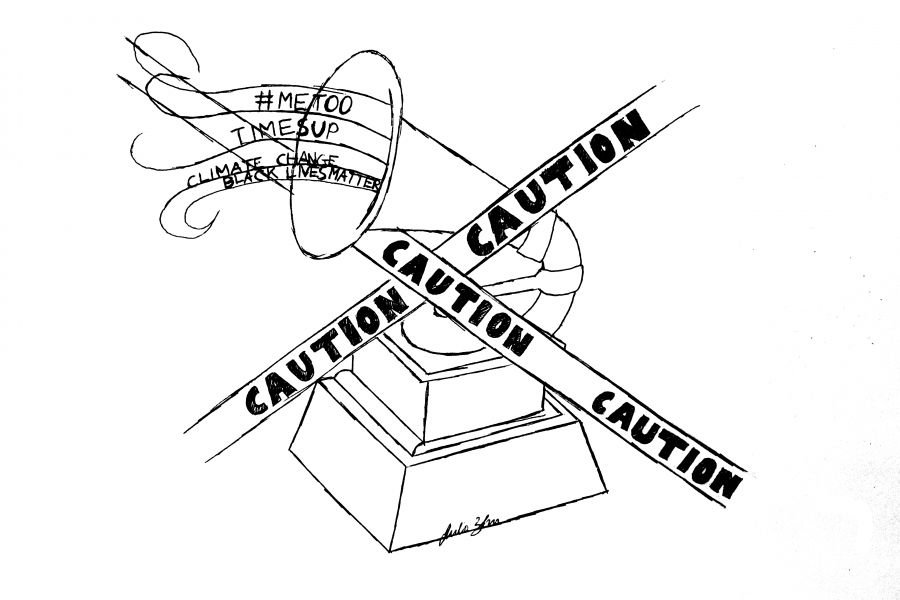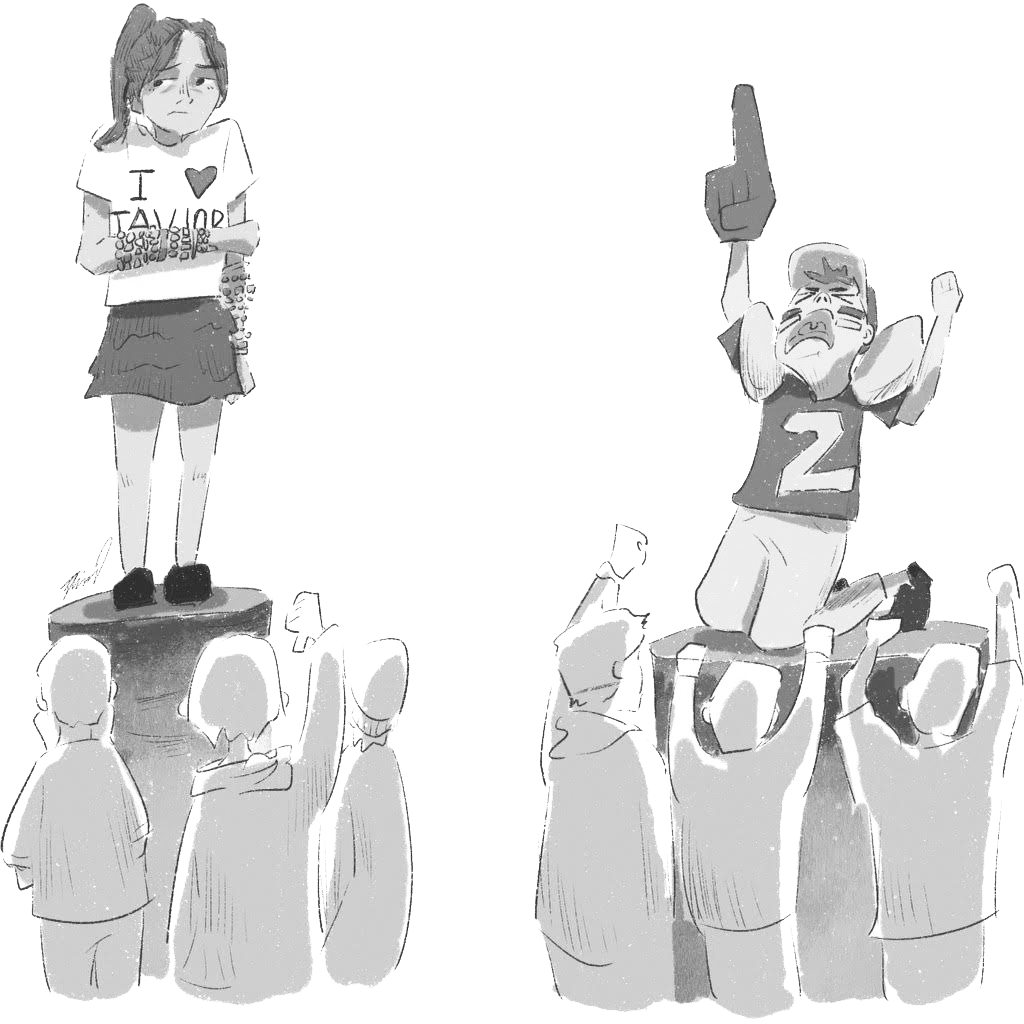My expectations weren’t high when I tuned into the Grammys. I had time and time again seen undeserved wins, completely unfair losses, and most commonly artists that didn’t even get nominated to begin with. So watching mainly with the question of “who will get snubbed this year” lingering in my mind, there was no chance that the nominations themselves could disappoint me.
That was until Kendrick Lamar gave one of the best performances I’ve ever seen.
With stunning visuals, choreography and lyrics, it beautifully wove political messages into art and even included a short speech by comedian Dave Chappelle that summed up my thoughts perfectly:
“Is this on cable?”
At an event where most performances could usually fall into the jeopardy categories of “worn-out pop star reunions” and “songs that old rock enthusiasts like,” it was hardly believable that a performance so meaningful and compelling could make its way onto the Grammy stage. For an all-too-brief seven minutes, I truly believed that the rest of the show might almost follow this up. I was wrong.
Throughout the next two hours and twenty three minutes, my outlook became less positive. The show slowly faded from a musical competition into a subpar political one, and its promise slowly withered. There was a noticeable contrast between what politics woven into awards shows looks like when done well (such as Lamar’s performance) and what it looks like when done terribly (looking at you, Hillary). At one point, there was a segment that was simply a montage of celebrities reading negative excerpts from Fire and Fury, a book documenting Trump’s first year of presidency. Even though I am not a Trump supporter, having celebrities read a book entirely biased against the president doesn’t involve music whatsoever, and as such seems not only irrelevant, but obnoxious. Indie musician Justin Vernon summed it up well on Twitter by saying that the award show “felt like a Democratic Party party, not rock ‘n’ roll.”
The most enjoyable parts of the event ended up being the artists’ performances, politics aside. Donald Glover’s rendition of “Terrified” was beautiful, but what stood out more was his lack of an agenda. He just came to sing, no political strings attached.
After seeing these political messages that seemingly served no purpose other than to satiate the public’s appetite, I was surprised to find numerous articles that suggested that the Grammys didn’t sufficiently use their political platform. Billboard, for example, criticized Bruno Mars’s acceptance speeches (in which he thanked everyone who helped with the album, his influences, and his family) for having no broader themes beyond himself. There shouldn’t be any expectation of award-winners to “acknowledge broader narratives” unless they want to.
Even worse than complaining about a lack of political themes, however, is complaining about who should or shouldn’t be able to get political. One CNN article criticized a U2 pro-immigration performance for being from two “aging white stars” and suggesting that instead they should invite artists of “Mexican, Central American, Haitian, African or Muslim descent” because they would actually be affected by immigration policies. It’s absolutely absurd to suggest that artists can’t convey a political message because of their race, and even more ridiculous when their message calls for racial equality. Although that viewpoint is ridiculous, the major issue is that we should be viewing the Grammys as an opportunity to showcase musical ability, not ethnic diversity. The article goes on to highlight missed opportunities for political statements or use of more diverse artists, but I think in both cases, the writers are still missing the point:
It’s just an awards show.
I realize that this was likely in response to the most recent awards show, the Golden Globes, which saw every attendee wearing black in support of the #MeToo movement and related foundations like Time’s Up, which is a great thing. With that being said, the Golden Globes successfully put an important movement in the spotlight, but it did so gracefully and with a clear purpose, which can’t be said of every awards show. There’s a right time and place for politics in awards shows, and the Grammys just missed the mark badly several times with many ill-advised and out-of-place political statements. After all, awards shows are supposed to reward talent, not ideology.
Politics does play a role in awards shows and is likely here to stay. The important thing about implementing political themes and messages, however, is knowing when to do so.
Leonardo DiCaprio’s 2016 Oscar acceptance speech on climate change was given at an opportune time, when the media was covering the topic but discussion was low, but most importantly, the movie was actually related to the topic he was covering. “The Revenant” not only focused on a man and his relationship to nature, but it’s production had to be moved due to global warming. Subsequently, the speech made an impact, with Tweets and Google searches relating to climate change skyrocketing. Climate change-related tweeting reached an all-time high and Google searches hit the third highest rate of all time. The recent Golden Globes was another obvious example as well, as a growing movement used a national platform to reach more people. Not to mention the fact that statements like “speaking your truth is the most powerful tool we all have” are a little bit more compelling than those talking about Trump’s eating habits.
Just because awards shows can be great platforms for political change doesn’t mean they always have to be.
We’ve seen great interplay in between politics and awards shows in the past, but it doesn’t mean we should be actively demanding that in the present. Nor does it mean we should place the burden of bringing up political topics on artists or awards shows, because then we end up with events like the recent Grammys: a forced political mess without any cohesive or relevant message for us to take away.






